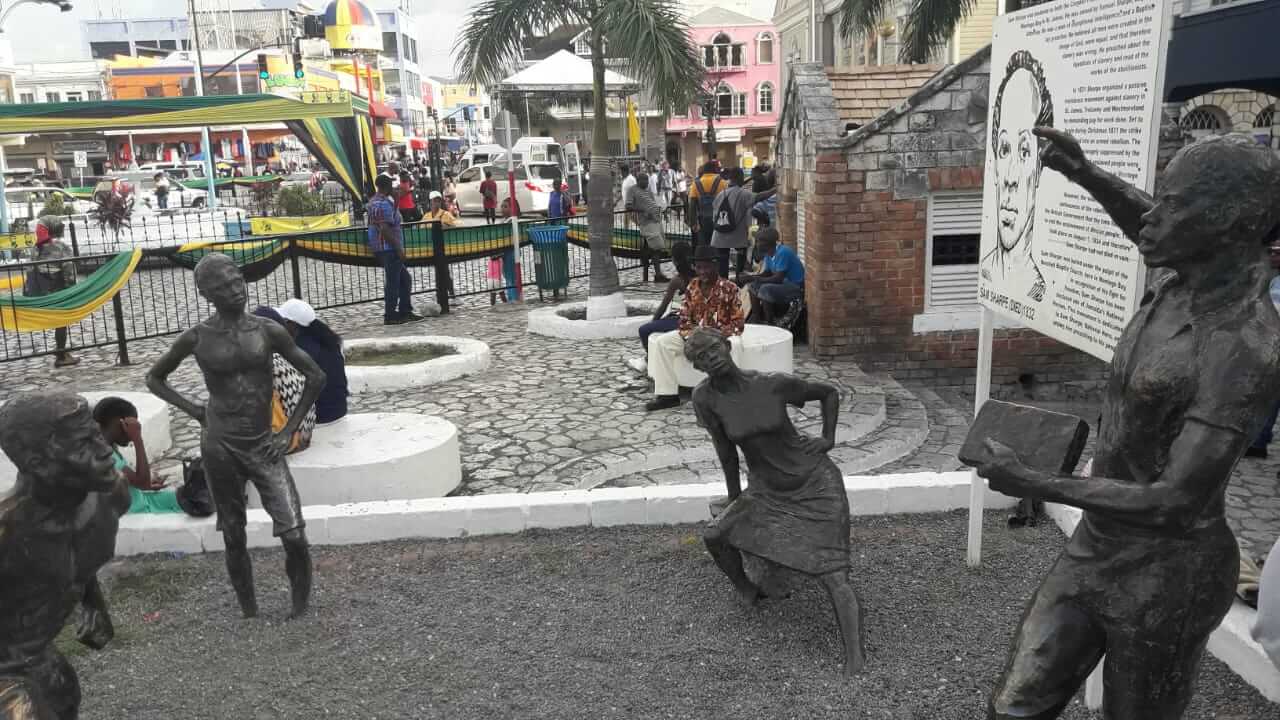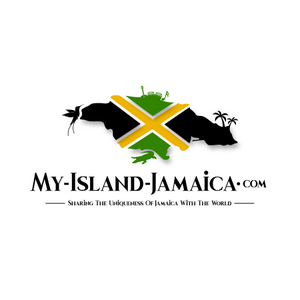Subscribe for all my updates and don't miss a thing! Sign me up!
Who Fought For Emancipation In Jamaica?
Our Emancipation Stalwarts
Sharing Is Caring! Share this awesome content with your friends now.
by Venesha Johnson | Associate Writer
Emancipation day marks the day slavery was officially abolished in Jamaica. A day that would not have been possible without some key players, the emancipation stalwarts.
New! Take a piece of Jamaica with you💃!
Savour the memories! Now you can get your authentic Jamaican souvenir items, as well as traditional Jamaican herbs, spices and housewares on our popular e-store. Click Here to learn more.
And, if you ever need a trustworthy and knowledgeable local guide, consider booking a private tour with us!
They are:
- Thomas Clarkson
- William Wilberforce
- Joseph Sturge
- William Knibb
- Thomas Burchell
- Samuel Sharpe
- Edward Gordon
What was Thomas Clarkson's role in the abolition of slavery?
Clarkson, an Englishman born in Cambridgeshire in 1760, started advocating against slavery in his early 20s and joined the Committee for the Abolition of the Slave Trade as one of its founding members in 1787.
With the help of sailors and doctors who had travelled on slave ships, Clarkson travelled all over Britain to obtain firsthand tales of slave atrocities to support the abolition of the slave trade. These were heavily included in his anti-slavery writings and contained detailed accounts of the Middle Passage and the methods employed to confine slaves.
He also acquired some of the tools used to mistreat captives, such as leg chains, branding irons, and tools for prying open the mouths of the slaves. During open lectures, demonstrations of their uses were given.
These writings served as a solid foundation for William Wilberforce's May 12, 1789, speech in the British House of Commons, which was the first abolitionist speech. The speech marked the start of a drawn-out parliamentary battle, which lasted until 1806 and saw motions in support of abolition introduced in the British Parliament practically annually. The traffic of slaves was outlawed in Britain and her colonies on March 25, 1807, thanks to the Slave Trade Abolishing Act. After that, Clarkson moved his attention to the total eradication of slavery and joined the Society for the Mitigation and Gradual Abolition of Slavery as a founding member.
What was the role of William Wilberforce?
William Wilberforce was a British politician, philanthropist, and the founder of the effort to end the slave trade. He lived from 24 August 1759 to 29 July 1833. To "destroy the Slave Trade and the reformation of manners," Wilberforce devoted his life. He was a Tory MP who was elected to Parliament in 1780.
Beginning in 1787, he served as the movement's Parliamentary leader. Following years of advocacy, Wilberforce's measure to stop Britain's involvement in the slave trade was approved in 1807 to a standing ovation. Another act covered the emancipation of slaves in British colonies from 1833.
In British history, Wilberforce is recognized as having led the abolitionist movement. This was presumably accomplished at the expense of other activists like Sharp, Clarkson, and Equiano by his success in requesting a debate in the House of Commons.
What did Joseph Sturge achieve?
English Quaker, activist and abolitionist Joseph Sturge (1793–14 May 1859) was also a Quaker.
Sturge travelled to the West Indies between 1836 and 1837 to observe the effects of the law of August 28, 1833, which replaced the de facto abolition of slavery in the British colonies with an easily exploited "apprenticeship" system. He testified before the House of Commons and released his proof of black people's ongoing mistreatment in 1837. On May 23, 1838, the British West Indies officially became abolitionists.
He wrote two books in the late 1830s regarding the Jamaican apprenticeship system, which influenced the British Parliament to set an early deadline for full freedom.
Together with the Baptists, Sturge helped establish Free Villages in Jamaica to offer housing for emancipated slaves; one of them was given the name "Sturge Town" in his honour.
William Knibb's role in the abolition of slavery?
Knibb moved to the island in 1824, and like Thomas Burchell before him, he soon started speaking out against slavery, calling it "glutted with crimes against God and man."
After drawing attention to the unjust arrest of a slave named Sam Swiney, Knibb won the respect of the other slaves. Knibb was detained after the Great Jamaican Slave Rebellion of 1832 because he may have encouraged the uprising. After being freed, Knibb persisted in speaking out against slavery despite being threatened with death and having his church in Falmouth, Trelawny, demolished.
Knibb travelled to England in 1832 and testified before both Houses of Parliament committees about the horrors of slavery and the challenges faced by missionary organisations. He travelled around Scotland and England, preaching against the mistreatment of slaves.
The Emancipation Act of 1832, which gave freedom to all slaves in British colonies, was passed as a result of the fervour with which Knibb advocated against slavery. After he passed away in 1845, Knibb continued to be the unrivalled defender of slaves. At the 150th anniversary of slavery in the British colonies, he received one of Jamaica's highest civil honours, the Order of Merit, in recognition of his achievements.
Thomas Burchell's role in Jamaica’s Emancipation
In the early nineteenth century, Thomas Burchell (1799–1846) was a prominent Baptist missionary and abolitionist in Montego Bay, Jamaica.
After moving to Jamaica from England in 1822, Burchell rapidly grew to despise slavery due to the mistreatment that slaves were subjected to. In various letters he addressed to the BMS, he expressed his disapproval of slavery and encouraged the group to work with the Society for the Abolition of Slavery to pressure the British government to abolish slavery.
When word of one of Burchell's letters' publication in a well-known British publication reached Jamaica, the local planters had Burchell jailed for sedition. After the Great Slave Rebellion of 1832, Burchell was detained as an instigator due to his fame. Later that year, after his release, he travelled to Britain and started working with the anti-slavery movement, giving firsthand accounts of the horrors of slavery. Members of the anti-slavery movement heavily depended on this material to help pass the Emancipation Act of 1832.
Large land parcels were separated into smaller lots in 1833 by Burchell, who then sold them to the former slaves, enabling them to establish free settlements. The Bethel Town and Mount Carey free communities in Montego Bay, St. James, were established by Burchell himself. He established ex-slave-focused churches, schools, and health clinics all across the island.
Samuel Sharpe’s role in Jamaica’s Emancipation
Samuel Sharpe, a national hero, was an exceptional leader whose desire to destroy the slavery system fueled the push to abolish slavery throughout all of Britain's colonies. At the height of Jamaica's sugar and slave economy, when Black people were frequently taken to the island and sold as slave labourers, usually to sugar plantations, Sharpe was born in the early 1800s. Sharpe's owner treated the slaves with compassion and allowed them to receive an education.
Sharpe came up with a daring idea in 1831 to abolish slavery in Jamaica by having the slaves go on strike on December 28 and refuse to work until wages were discussed. However, Sharpe insisted that the slaves should refrain from all forms of violence. Most of the western parishes quickly supported and accepted the proposal.
On December 27, a few slaves set fire to some Kensington Estate structures, igniting riots on other plantations and thwarting Sharpe's strategy of nonviolent protest. The government dispatched military forces in reprisal, and they brutally put down the uprisings on all estates, murdering over 500 slaves in the process. Sharpe was later found guilty and executed for his part in sparking the uprising. The scale of the insurrection compelled the British Government to address the strong anti-slavery sentiment on the island notwithstanding the number of lives lost.
The British House of Commons established a committee in 1833 to work for the abolition of slavery in all British colonies, and the Emancipation Act, which provided that slavery would end on August 1, 1834, was approved the following year.
Sharpe received the nation's highest honour, the Order of National Hero, posthumously in 1975 for his commitment to the anti-slavery fight. His image can currently be found on the fifty-dollar currency issued by Jamaica, and a statue of him was erected in St. James' Sam Sharpe Square.
Edward Jordon’s role in the Emancipation of Slaves in Jamaica
With the aid of his publication The Watchman, newspaper editor, statesman, and political activist Edward Jordon sparked opposition to slavery in Jamaica among the free mulatto class.
Although Jordon, a mulatto from Jamaica, had more rights and a higher social rank than the slaves, he was denied access to fundamental civic liberties like voting and testifying in court because of his race. Jordon emerged as a vocal member of the mulatto community who actively promoted their causes in his newspaper.
However, he also published frequent articles criticizing the harsh treatment the slaves received. In an editorial published in 1832, he urged the planters to "take off the fetters and let the downtrodden go free." In response, Jordon was put on trial for sedition, a crime that carries the death penalty in Jamaica. Although the accusation was ultimately withdrawn, Jordon was imprisoned for six months before being let out.
Even after being freed, Jordon continued to advocate against slavery, and after being elected to the House of Assembly in 1835 for Kingston, he worked to put the Emancipation Act of 1834's provisions into effect.
In Kingston, a statue honouring him was unveiled in 1875; it is still on display today in St. William Grant Park.
Without these key players, we have no idea where Jamaica would be today, and for that, we will forever be grateful.
Sharing IS Caring! Please help me get the message out by sharing this article with your friends on social media (links below). Thnx ;-)
If you found this page useful, please consider subscribing to my weekly newsletter, to get even more.
It tells you each week about the new information that I have added, including new developments and great stories from lovers of Jamaica!
Return to Jamaican National Heroes from Emancipation Stalwarts
Return to My Island Jamaica Homepage from Emancipation Stalwarts
References & Sources For Emancipation Stalwarts
- Emancipation stalwarts (no date) Jamaica Information Service. Available at: https://jis.gov.jm/information/emancipation-stalwarts/ (Accessed: December 1, 2022).
- Joseph Sturge (2022) Wikipedia. Wikimedia Foundation. Available at: https://en.wikipedia.org/wiki/Joseph_Sturge (Accessed: December 1, 2022).
- William Wilberforce (2022) Wikipedia. Wikimedia Foundation. Available at: https://en.wikipedia.org/wiki/William_Wilberforce (Accessed: December 1, 2022).
Emancipation Stalwarts | Written: December 1, 2022
New! Get My Latest Book👇🏿
|
You asked, I've answered! You no longer need to save for months or years, to enjoy paradise! I spilled the beans! sharing my top tips on finding cozy accommodations and secret gems, only the way a native could! Click Here to pick it up on my e-store and start saving now! |
See The Best Of Jamaica - In Videos!
|
My channel reaches over 140,000 subscribers worldwide and has leveraged over 11 million views, sharing, what I call 'The Real Jamaica'. Subscribe today and join our family of viewers. |
Read More ...
New! Experience The REAL Jamaica!
Book Your Private Tour here and experience Jamaica the way we (locals) do!
P.S. Didn't find what you were looking for?
Still need help?
Click Here to try our dependable and effective Site Search tool. It works!
Or, simply click here and here, to browse my library of over 500 questions and answers! Chances are someone already asked (and got an answer to) your question.













New! Comments
Have your say about what you just read! Leave me a comment in the box below.